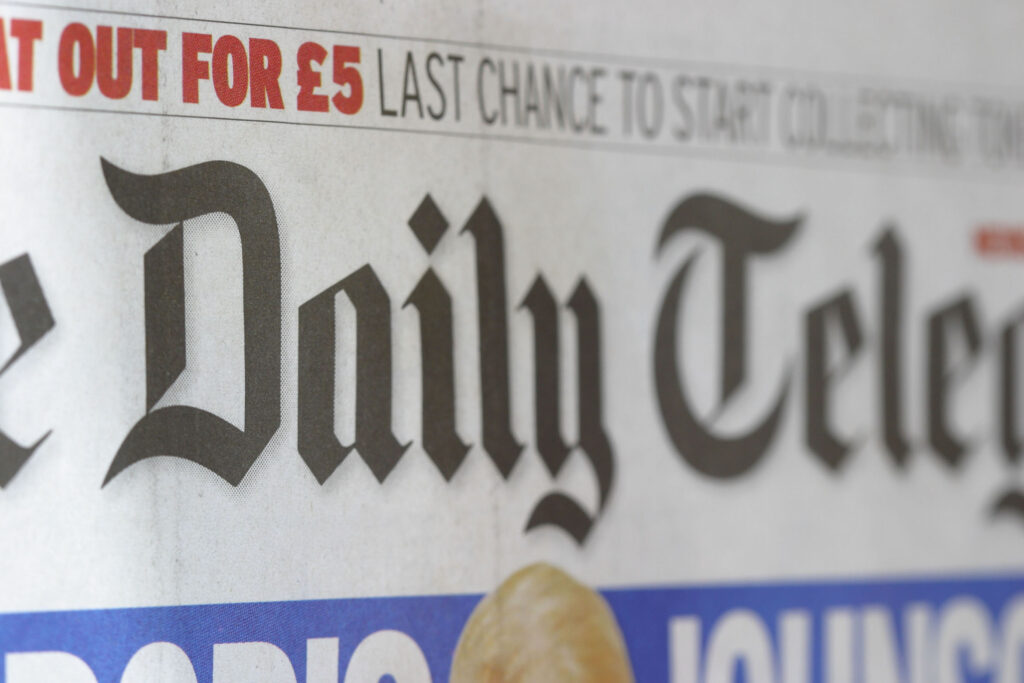The government looks set to block the takeover of the Telegraph orchestrated by CNN’s Jeff Zucker. Culture secretary Lucy Frazer has announced her intention to launch a long, costly probe into the takeover bid by RedBird IMI. In the meantime, the government will propose legislation to ban foreign state ownership of British newspapers, effectively killing the takeover deal thanks to the partial involvement of International Media Investments, a company based in the United Arab Emirates.
This saga has profoundly worrying implications for freedom of the press. Spooked by the Telegraph takeover, the government has rushed into short-sighted legislation, whose scope will extend far beyond this case and will have complex consequences for other investment deals further down the line.
The problem with interventions in private deals like this is they are arbitrary. Presumably, the upcoming legislation will need to discern what is a large enough ‘media title’ for foreign state ownership to be a national security threat. According to Press Gazette analysis, readership of the Telegraph likely fell by hundreds of thousands between 2019 and 2024. It now likely stands at just 190,000.
At what point is it not a big enough title to warrant state intervention? If the circulation figure drops so low the organisation’s financial survival is in peril, a law restricting takeovers could well cause the newspaper to disappear by banning an injection of essential cash. Would that be a net positive for the British media landscape?


Baroness Stowell, the Conservative peer behind the push to kill off the Telegraph deal, now wants a law banning minority stakes in media companies too, if they are owned by foreign governments and larger than 10 per cent. It’s unclear why. Is there some special voting rights and editorial privilege granted to shareholders who own more than 10 per cent? This is an arbitrary figure designed to virtue-signal, rather than to protect the press from malign foreign influence.
As well as arbitrariness, there are clear double standards. The Independent and the Evening Standard are still owned by Evgeny Lebedev, who also sits in the House of Lords. Lebedev’s place in the British media does not appear under any threat from the new law, presumably because it would be difficult to legally define him as a ‘foreign state’ in the same way as UAE investment in RedBird.
In practice, though, he is the son of a Russian oligarch and surely would not have much difficulty getting high-powered friends in the Kremlin to pick up the phone if he needed them. Legislation is an imperfect tool which should only be wielded when necessary. In this case, it is so imperfect it would exclude RedBird almost completely from the British media but has no qualms with Lebedev. It is hard to call this fair.
Ultimately, this legislation is unnecessary. The free market, in which the Conservative party still claims to believe, would punish any newspaper which became a rag transparently promoting foreign interests. Its readership would evaporate. It would not be in the interests of Jeff Zucker, the Telegraph, or indeed RedBird itself to allow the financial side of its business to become muddled with its editorial side, which is why RedBird was quick to rule that out in no uncertain terms. It is hard to see why any government intervention was necessary here.
The government is operating on an outdated view of the media landscape. Several decades ago, when the only sources of news were a handful of newspapers, it may have been appropriate to quash some investments from abroad. But in 2024, improper conduct from a newspaper at the behest of its backers would be rightly called out without state interference.
While the British government is clutching its pearls about the Telegraph, across the pond, US politicians are grappling with a possible forced sale or ban of TikTok, which is the number one news source for millions of young people. Whose ownership will matter more in the years and decades to come – the Telegraph’s, or TikTok’s? While America looks forwards, Britain looks backwards. Our politicians would do well to pay attention to the bigger picture.
Politics.co.uk is the UK’s leading digital-only political website, providing comprehensive coverage of UK politics. Subscribe to our daily newsletter here.












